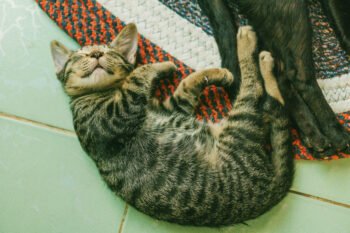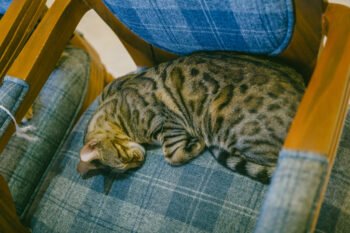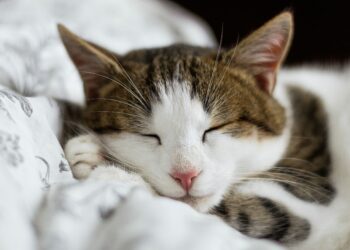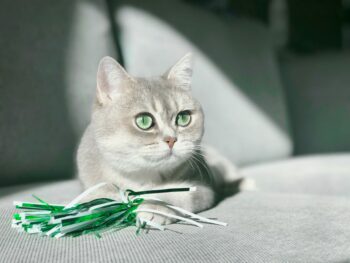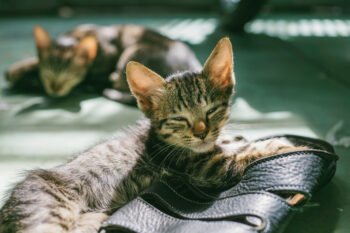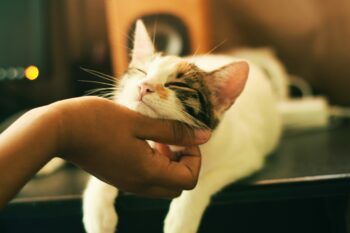How much does feline fatherhood factor into kitty’s character?
As most of us already know, the domesticated feline we know and love today is a close relative of the big cats, such as lions. But fatherhood in the wild is quite different from fatherhood in our own kitty’s life. Lions form a family unit, known as a pride. It consists of anywhere from four or five to up to 15 or 20 females with their cubs, and anywhere from two to seven males. Usually, all of the females in a pride will be related to one another, and the young cubs are usually fathered by one (or more) of the pride males.
Although the females do most of the hunting, the males will usually eat first, followed by the females, and finally the cubs. However, the males have been known to share their take with the cubs in the pride if food is limited. The males defend their pride’s territory, and of course, provide the stud services for more cubs to be born.
Only the Stork Knows for Sure
Male lions take fatherhood much more seriously than domesticated feline males, who seem to be the “love ’em and leave ’em” type. The trouble with fatherhood in the domesticated cat is that females often have multiple candidates for the role of daddy. Domesticated cats are not monogamous creatures, and the females usually mate with several partners during one heat cycle (unless they are in a breeder’s controlled setting, where one male stud cat is chosen to father the litter of a specific female). This is perfectly natural behavior for a female cat.
As a result, it is often impossible to know which male fathered a female’s kittens and, in fact, each kitten may have a different father. This is why a litter of kittens may include an orange tabby; a black and white shorthair, and a pure white; blue-eyed fluffball–each looking like a particular (but different) male cat in the neighborhood.
Like Tom, Like Kitten
After a litter of kittens is born, the mother will have the greatest impact on the attitudes her kittens develop about life. The fathers rarely come in contact with their kittens. However, studies have been conducted that establish a definite link between genetics and personality. Dr. Sandra McCune, an animal behavior expert at Waltham Centre for Pet Nutrition in Britain, has studied feline behavior extensively and has conducted studies on the role that a father plays in the temperament of his offspring.
One such study, performed at Cambridge University, hints that paternity makes a fundamental difference in the personality of the kittens. Two different toms, one friendly and the other unfriendly, sired litters of kittens. Although the kittens had never met nor observed their fathers, McCune said, “As you would expect, the friendliest kittens were those from the friendly father.” In fact, in each litter the kittens exhibited the same type of temperament as the tom who had sired them. The only way this would seem to be possible is if behavior was passed genetically from father to kitten.
Genes vs. Environment
But while a kitten may take on aspects of the father’s temperament, in actuality a kitten’s father really won’t contribute much to the grown cat’s final personality. The Cambridge University study does suggest that genetics play some part in kitty’s development, but so do many other factors, such as socialization and environment. It is actually quite difficult to determine how big a part feline fatherhood plays in the grand scheme of things.
A big part of the equation concerns the parents who have no genetic connection: you! Parenting isn’t just about DNA; it is also about unconditional love and a lifelong commitment — something you can give your cat regardless of who her father was.

